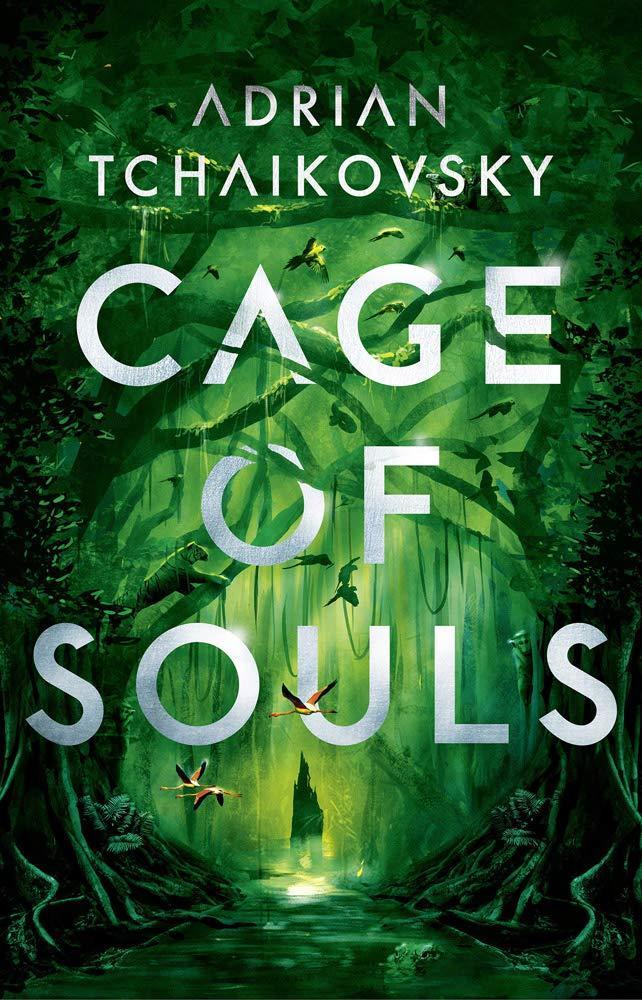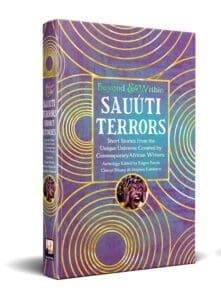
Synopsis
The Sun is bloated, diseased, dying perhaps. Beneath its baneful light, Shadrapar, last of all cities, harbours fewer than 100,000 human souls. Built on the ruins of countless civilisations, surviving on the debris of its long-dead progenitors, Shadrapar is a museum, a midden, an asylum, a prison on a world that is ever more alien to humanity.
Bearing witness to the desperate struggle for existence between life old and new, is Stefan Advani, rebel, outlaw, prisoner, survivor. This is his testament, an account of the journey that took him into the blazing desolation of the western deserts; that transported him east down the river and imprisoned him in verdant hell of the jungle’s darkest heart; that led him deep into the labyrinths and caverns of the underworld. He will treat with monsters, madman, mutants. The question is, which one of them will inherit this Earth?
Review
Cage of Souls is a captivating work of speculative fiction of the highest order. A standalone that felt like an entire series in scope and imagination. Adrian Tchaikovsky’s world building and storytelling is off the charts in this outrageously entertaining story.
The story is told in the style of a historical memoir, as written down by the main character of the piece, Stefan Advani. Advani is a social historian, activist, outlaw, prisoner, and witness to the beginning of the end of the world as he knows it. The narrative is delivered in Advani’s wry, sardonic wit, which is acerbic and irreverent at times, providing some dark humour which I really appreciated. The anecdotal style, with his random musings, gradually paints the bigger picture of the world and its people.
Advani’s story, told in several parts, moves back and forth between his recent and immediate past. The nonlinear timeline works well, as it fits the journal-like style of the storytelling, with Advani going off on various tangents of memory, thought, and opinion.
Aside from Advani, there is a great cast of characters, all richly envisioned and covering the spectrum of humanity – mostly the bad. Passing characters are also described in wonderful detail, making the world all the more authentic. The vindictive Marshal at the prison is particularly fun, with his grim outlook and indifference to executing anyone who looks at him funny. There are so many great characters throughout (too many to mention here) all brought to life through Advani’s candid recollections.
There is no obvious plot to speak of, as we follow Advani through the chaos, and it doesn’t really matter. The story serves more as a commentary on society, faith, religion, culture, politics, science, and morality. There is a metaphysical and philosophical quality to the writing, particularly highlighted in the part involving the mysterious Faith. I felt it was an extremely clever use of a character, giving double meaning to a lot of the passages.
What Tchaikovsky does so brilliantly is, he holds a mirror up to our own history, society, and humanity, thus creating a truly unique perspective through his astounding world building (which is the true beauty of the book) .
So let’s talk about that world building. Set in a far future, dystopian version of Earth, following an unknown apocalypse, we find Shadrapar, with its lost technologies, lost environment, and lost histories. The world and society building is unlike anything else I’ve experienced. The remains of humanity have little understanding of the ‘ancients’ – which I interpreted as our Earth now, or in the near future, where we have caused the end of our world as we know it. Centuries later, we are at the beginning of another end of times, in Advani’s time. The world has an archaic vibe rather than far future – from a technological perspective, with flintlocks and sabers being used alongside recovered technologies like energy weapons. There are hints at ‘old’ technologies like cryogenics, AI, time travel, genetic engineering, and much more, which the Shadrapans have little to no understanding of, making assumptions or even religions around them.
With an almost Victorian-gothic vibe at times, particularly in the underworld and the Island, it’s extremely difficult to categorise this future world adequately. All I can say is, Tchaikovsky is a master world builder, with a phenemonal imagination. His ability to take you on a journey to another place and time, whilst immersing you there fully, is unparalleled.
Cage of Souls is one of the most fascinating and unique versions of a post-apocalyptic, dystopian society and world I’ve read. Adrian Tchaikovsky is a true marvel. His ideas, imagination, and creativity is beyond most of anything else I’ve experienced.








Leave a Reply